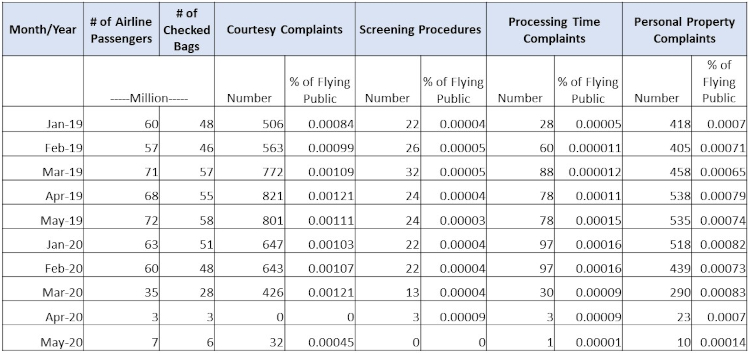
In May, I wrote on Security Debrief about customer service statistics for the Transportation Security Administration (TSA). The data showed that the number of airline passengers decreased significantly, as did the number of customer complaints. The decrease was unprecedented. I also reported that as additional data became available, a clearer picture of the number and types of complaints would become more apparent.
Well, I was wrong. What became clearer was that COVID-19 had a horrendous effect on the economics of the U.S. transportation industry, and the importance of improving customer service to some would be a secondary or tertiary goal. For example, as shown in the table below, TSA received no courtesy complaints for April 2020 and no screening procedures complaints for May. Only one person complained of processing time issues in May. The most interesting caveat is that TSA received 32 courtesy complaints that same month.
Due to privacy concerns, it is not possible to look at the actual complaints related to courtesy, but given how few passengers were flying, I cannot imagine what prompted these complaints. What I can say is that regardless of the month or time of the year, the largest number of complaints received by TSA is in the area of courtesy, and this has not changed.
The large number of courtesy-type complaints is not new. A 2017 USA Today article says that “an increasing number of air travelers, citing their own experiences” are being “harassed and harangued by the screeners who are supposed to be helping them.” The same article says that TSA agents are trained in subjects such as effective communication, common courtesies and appropriate language use.
It is possible that (since 2017) more and better etiquette training has being provided but the data above does not show it. If what is being provided has not been effective, then a different type of training is necessary.



